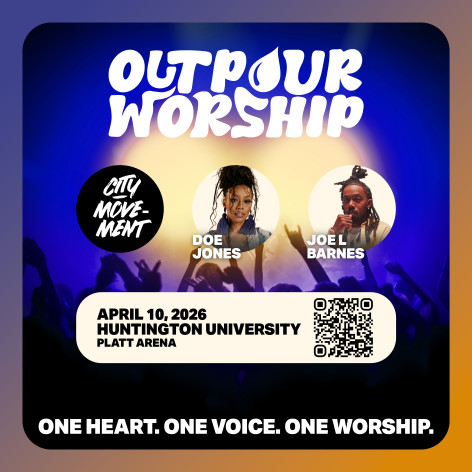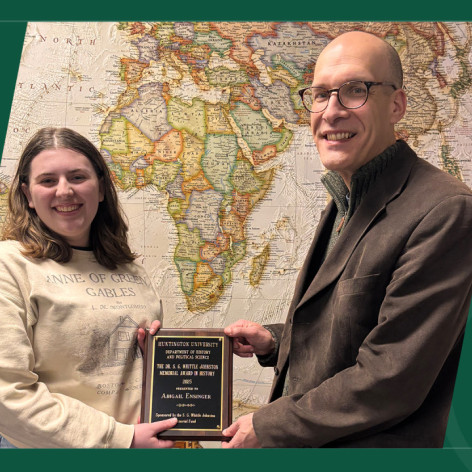Creating Scholars
It's known as the Core - the liberal arts center of all education at Huntington University. It is the reason the university was founded and why it still exists today.
Math, science, philosophy, English, social studies, the arts. Individually, each discipline may create a graduate, but together, they create a scholar.
"The Core is a unifying thread that runs though all majors," said Dr. Norris Friesen, vice president and dean of the university. "This is a part of our identity and who we are."
The liberal arts concept is not new to education. In fact, the idea of imparting general knowledge to students dates back to medieval times when the liberal arts was defined as grammar, dialectic, rhetoric, geometry, arithmetic, astronomy and music.
Today, that definition has evolved, but its purpose is still the same, especially in preparing students for a life after graduation.
"Asking an 18 or 19 year old what they will major in is like asking a 13 year old who they will marry. There is just not enough life experience at that point," Friesen said.
"We're preparing people for a palette of things that they can do."
As many college alumni know, you don't always end up in the job you thought you would after graduation. Sometimes, English majors end up working for a bank or accounting majors find themselves thriving in human resources. The liberal arts gives students the opportunity to explore many paths without fear that they have wasted time or money on their education, Friesen explained.
"I think what it affords students today is flexibility," said Mike Perkins, a 1980 communications graduate. "(It's) filling in the cracks of what I learned in life."
Perkins discovered, along with Kelly Savage, Trista (Guillaume) Miller, Jeff Scott, Sam Ward and many other alumni, that their liberal arts education gave them more than just a degree - it created possibilities for them to explore different avenues in their lives.
"From my perspective, a liberal arts education helps you learn how to think and lead," Savage, a 1983 graduate, said. "As you get older, you look back on your liberal arts education (and you begin to) appreciate it more over time."
As a professor of history at Huntington, Dr. Jeff Webb knows all too well the importance of the liberal arts, especially in molding students into better Christians as well as whole individuals.
"The liberal arts education is the philosophy of education, not a curriculum," he explained. "It's a posture that one takes toward education."
Webb explained that at a Christian college, professors need to create "an arena of ideas, not a zone of protection."
Webb explains that this idea is rooted in the university's Philosophy of Education: "As a Christian college, Huntington is committed to developing the whole person, assisting students to understand all areas of human knowledge from the perspective of a Christian worldview and preparing them to impact their world for Christ."
In his classes, Webb says that he wants to create thinkers rather than just historians.
"I would think of it as a failure if I left my nursing students in History of Civilization with just more knowledge of history," he said. "(I want them to) consider themselves thinkers who are moving through life and (continuously) developing."
The public launch of Together: The Campaign for Huntington University this past fall is also helping to ensure that future students will have access to this kind of life-shaping liberal arts education.
The $21 million capital campaign has already renovated Becker Hall to expand the film and animation programs and built the Studio Art Center to provide more equitable space for the art program. Its next focus is the Merillat Complex for Physical Education and Recreation (MCPER) where construction and renovations will strengthen recruiting efforts for the athletic and academic programs as well as provide better equipment and learning opportunities for the entire campus. The campaign is also helping to increase the University Fund and the endowment to provide scholarships to current and future generations. But more needs to be done.
Currently, only $10.3 million has been raised for the capital campaign - nearly half of the goal. Donations may be made in various forms such as cash, appreciated securities or real estate. The Office of Advancement will also work with individuals to make sure that their gifts fulfill the donor's wishes as well as the university's needs.
The campaign, as well as a yearlong focus on the liberal arts, is helping the campus community celebrate its roots and remember why Huntington University was founded.
"The time is right for the institution to recommit itself to its liberal arts identity ... and reinvigorate the tradition," Webb said. "We need to make it alive now as it was (in 1897)."



